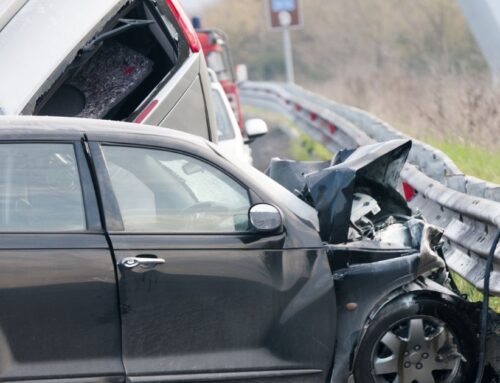Motor vehicle collisions are among the leading causes of traumatic brain injuries, a condition that is not always detected immediately or diagnosed properly. These injuries can be quite serious, yet the path toward pursuing fair compensation is often challenging.
How Can a Car Accident Cause a Traumatic Brain Injury?
A traumatic brain injury occurs when an external force causes the brain to move rapidly within the skull. In a car accident, this force may come from a direct blow to the head, a violent jolt, or contact with objects inside the vehicle. Even if the head does not strike a surface, the sheer force of sudden acceleration or deceleration can cause brain tissue to stretch and tear. This movement disrupts normal brain function and can produce immediate or delayed symptoms.
What Are Common Symptoms of a Traumatic Brain Injury?
Some individuals experience headaches, dizziness, confusion, or blurred vision shortly after the crash, while others notice changes in memory, mood swings, or difficulty concentrating. Severe cases can result in loss of consciousness, slurred speech, or seizures. Because these symptoms may develop gradually, medical attention is often necessary even if a person feels fine immediately after the collision.
Are All Traumatic Brain Injuries the Same?
No, traumatic brain injuries differ in type and severity. A mild TBI, often referred to as a concussion, may cause temporary symptoms that improve with rest and treatment. Moderate TBIs can lead to longer-lasting cognitive or physical challenges; severe TBIs may involve extensive brain damage that affects speech, movement, or independence. The type of injury depends on the nature of the collision, the force of impact, and whether the head directly struck an object.
Why Can TBI Have Delayed Symptoms?
A traumatic brain injury can cause delayed symptoms because the brain does not always react to damage right away. After a crash, the brain may swell slowly or small blood vessels may leak over time, creating pressure inside the skull. At first, a person might only have a headache or feel tired, but as pressure builds, more serious problems can appear.
What Are the Potential Long-Term Effects of a Traumatic Brain Injury?
Some people may experience chronic headaches, sleep disorders, or sensitivity to light and sound. Others may face challenges with communication or emotional regulation due to impaired brain function. Severe TBIs can require extensive rehabilitation and long-term medical care. Long-term effects like those can make it difficult or impossible to work or complete everyday tasks.
Can a Traumatic Brain Injury Occur Without a Direct Head Impact?
Yes, a direct blow to the head is not always necessary. The rapid back-and-forth motion caused by a collision can still cause the brain to strike the skull. This type of injury is sometimes referred to as a coup-contrecoup injury, where damage occurs on both sides of the brain.
Why Is Immediate Medical Attention Important After a Car Accident?
Prompt evaluation allows doctors to detect potential brain injuries before symptoms become severe; early diagnosis may reduce the risk of complications by allowing treatment to begin sooner. Without medical attention, internal bleeding or swelling can worsen and lead to permanent damage. Timely care also creates a record of injuries that may be relevant if legal or insurance issues arise following the crash.
What Steps Should I Take If Suspecting a TBI From a Crash?
Seek medical care right away. A healthcare provider can perform neurological exams and, if necessary, order imaging tests like CT scans or MRIs. Following medical advice, attending follow-up appointments, and keeping track of any new or worsening symptoms are important for recovery. Documenting these steps can also provide helpful evidence in legal or insurance matters connected to the accident.
Our Experienced Elkhart Car Accident Lawyers at Wilson & Kinsman, LLC Can Pursue Compensation for Your Injuries
If you or a loved one suffered a TBI from a motor vehicle crash, contact our Elkhart car accident lawyers at Wilson & Kinsman, LLC. Call 574-522-1900, book online now, or submit a form for your free consultation. We have offices in Elkhart and South Bend, Indiana.
Share This Story, Choose Your Platform!
Give us a call!
Testimonials
Read what our former clients have to say:







